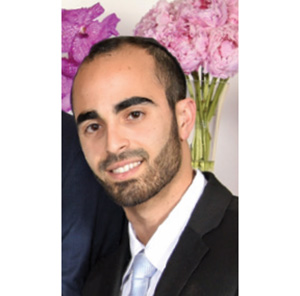
“Ein od milvado”—There is none other besides for Him.” This week’s parsha advances the core idea of belief in God: “And you should know today and take it to your heart that Hashem is God in the heavens above and upon the earth below, there is no other” (Devarim 4:39).
This pasuk seems to introduce two distinctions within the realm of emunah, the belief that everything that occurs to us in our lives is only and only from Hashem. 1) “You should know.” Knowledge is a facet of intellectual capability; we should have an intellectual awareness and understanding of this emunah. 2) “Take it to your heart.” We should also develop an emotional understanding and feeling of this emunah in our inner experience of life occurrences. Indeed, the Chafetz Chaim says that this emunah should be internalized so that it becomes part of you and has a practical effect on your emotions.
We are all well trained in intellectual competence. All our lives are circled around academic scholarship and developing our minds. Whether it’s in school, college, yeshiva, or the beit midrash, typically all our energies are geared toward heightening our intellectual awareness of knowledge and ideas. It’s not too often that we learn the skill of bringing lofty concepts and having them penetrate our emotional experience. That being said, how do we develop a tangible experience of emunah? How do we internalize this idea of emunah so it becomes part and parcel of our heart, not just our brain? How do we relate to emunah so that it becomes an emotional experience rather than just an intellectual awareness?
I heard a story from Rav Moshe Weinberger that I think helps bring out one way to relate to developing an emotional emunah: The Ba’al Shem Tov once was walking with a big lamdan (Torah scholar who “knows how to learn”). The lamdan wanted to know what the Baal Shem Tov’s definition of emunah was. But first the Baal Shem Tov asked him what he thought emunah is. So the lamdan answered: “Well, there is a shita (opinion) of Rav Sa’adya Gaon who holds this, and there’s the Chovot Halevavot who holds like that, and the Rambam in Moreh Nevuchim says this way, and Rabbeinu Bechaya on Torah says that way…” The lamdan went through the different opinions and differences on what emunah is. He gave a whole half hour to 40-minute lecture to the Baal Shem Tov on what emunah is. And then he asked the Ba’al Shem Tov, “So what do you think emunah is?” The Baal Shem Tov said, “I’ll tell you what I think emunah is: emunah is the feeling that I had when I was in my mother’s arms—that I trusted that she wouldn’t drop me, that I was next to her, and she loved me. That’s emunah.
The Ba’al Shem Tov knew the Rav Sa’adya Gaon and the Moreh Nevuchim. But as Rav Moshe Weinberger points out, these two people were describing two different kinds of emunah. The lamdan was pointing out emunah “sichlit,” intellectual emunah. But the Ba’al Shem tov was pointing out emunah “chushit,” a feeling and experiential emunah. One way we can develop an emotional emunah is by developing our understanding of Hashem’s love for each of us. Although the concept of a baby in its mother’s arms is only a tiny comparison of the love of our mothering attribute of Hashem toward each of us (as the love of any person for us pales heavily in comparison to the love Hashem has for us), nevertheless, the peace and tranquility that a baby feels while lovingly cradled in its mother’s arms, and the inherent trust it has for its mother, is an imagery that each of us can relate to on an emotional level. David Hamelech, the prototype of one who underwent life-long challenges, described his way of remaining one with Hashem: “I calmed and quieted my soul like a baby weaned of its mother” (Psalms 131:2). The Chovot Halevavot says that we learn from here that someone who trusts in Hashem, whatever happens to him, even if it is something difficult and against his nature, will nevertheless trust that Hashem will do only what is good for him in all matters, just like a mother has compassion on her baby in washing it, diapering it, and harnessing or unharnessing it against its will. The Matanat Chelko writes that this idea is the essence of trust: to feel like a baby in the hands of its mother.
In trying and challenging times, it is emunah chushit—really trusting and feeling that Hashem deeply cares about you, like a baby in its mother’s arms—that gives us the strength and fortitude to remain emotionally connected to Hashem. Perhaps this perspective is one way of reaching the dictum of “and take it to your heart.”
By Binyamin Benji
Binyamin Benji is a graduate of Yeshivas Rabbeinu Yitzchak Elchanan and Wurzweiler School of Social Work. He currently learns in Lakewood and is the author of the Sephardic Congregation of Paramus’ weekly Torah Talk. He can be reached at benjibenji26@gmail.com.











